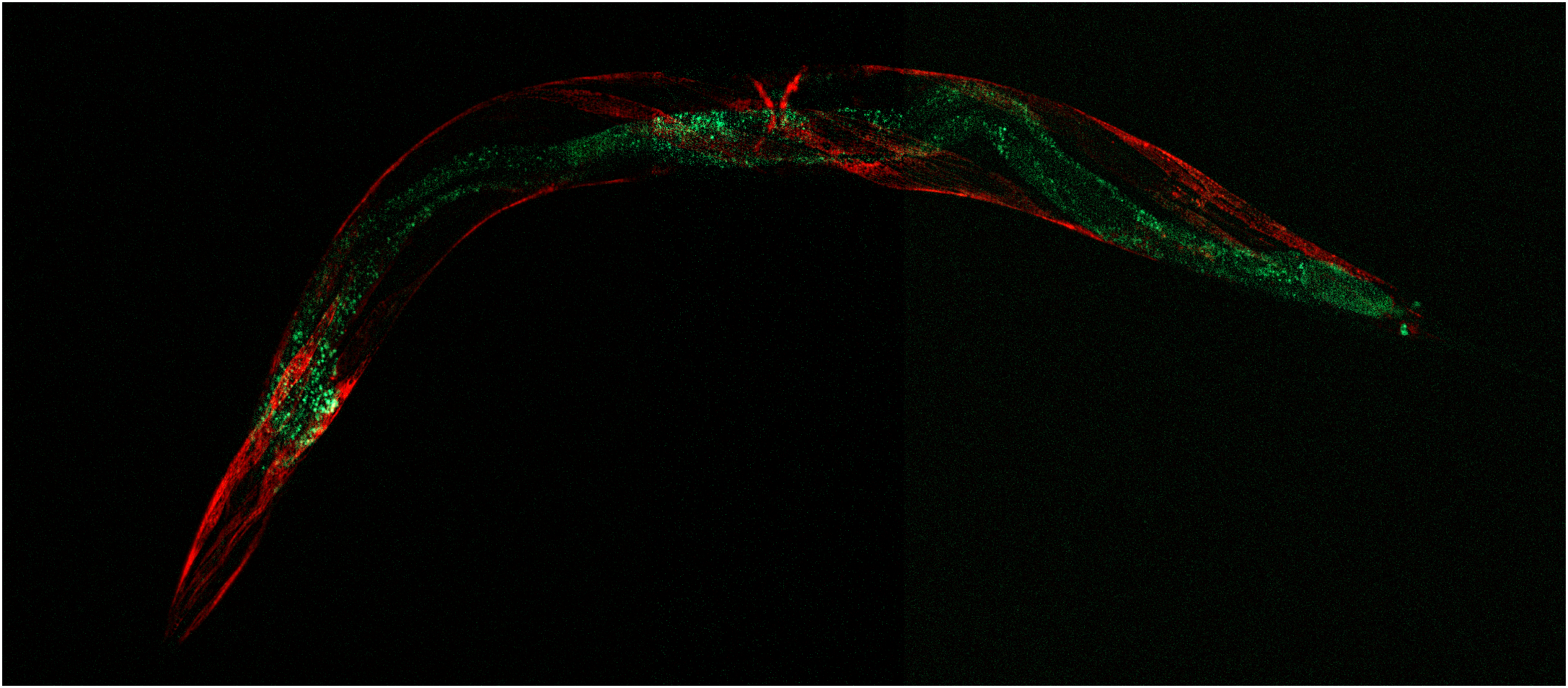Liaison-Group between the IUF and the Central Institute of Clinical Chemistry and Laboratory Medicine of the Heinrich Heine University

Environmental factors heavily impact on human health and behaviours. Mitochondria are key modulators of cellular homeostasis and represent central hubs in response to different types of environmental and nutritional interventions. Through state-of-the-art approaches, my lab primarily exploits the nematode Caenorhabditis elegans to unravel molecular mechanisms of mitochondrial adaptation to extrinsic interventions (e.g. food components and contaminants, hypoxia, pollution related particles) in modulating neuronal aging and diseases. To this end, and with the ultimate goal of extending healthy lifespan and identifying specific risk groups, we also developed a high-content phenotype-based screening strategy to identify compounds with beneficial or toxic effects acting through mitochondria.

Head of liaison group:
Natascia Ventura
Mechanistic aspects of mitochondrial-stress control of longevity
Through complementary molecular, cellular and behavioural assays we investigate intracellular players underlying mitochondrial-stress control of aging and associated diseases in different projects funded by the DFG, the Leibniz Competition funding line Collaborative Excellence and the Forschungskommission of the Medical Faculty. Targeted approaches looking at cell death regulatory mechanisms, and at neuronal specific pathways, as well as unbiased approaches (combined omics analysis) are concurrently used in these projects to characterize the spatiotemporal dynamic of the aging process at cellular and organismal level upon mitochondrial stress.
Environmental interventions acting through mitochondria to modulate health and lifespan
In these DFG funded projects we optimized a high-content phenotypic-based screening microscopy platform that is being exploited to identify environmental factors (e.g. food component or contaminants) acting through mitochondria during animal development, to induce or prevent neuronal toxicity and healthspan; and to investigate the molecular mechanisms underlying these effects.
C. elegans models for human mitochondrial-associated diseases
We developed C. elegans models for different human mitochondria-associated diseases that nicely reproduce disease progression and we are characterizing mitochondrial and neuronal deficits in these models through a combination of behavioural and biochemical assays. The ultimate goal of this project, recently funded by the DFG, is to identify key pathomechanistic molecular players for targeted therapeutic interventions (pharmacological or nutritional) to eventually test in corresponding mammalian diseases models.
IUF internal:
AG Krutmann
AG Koch
AG von Mikecz
AG Schins
AG Esser
Core Unit GEMD (Rossi)
HHU:
Prof. Judith Haendeler, Institute of Clinical Chemistry and Laboratory Diagnostic, Medical Faculty
Prof. Felix Distelmeir, Centre for Child and Adolescent Medicine, University Hospital
Prof. Mathias Beller, Institute for Mathematical Modelling of Biological Systems, MNS Faculty
Prof. Andreas Reichert, Institute of Biochemistry and Molecular Biology I, Medical Faculty
Dr Roland Piekorz, Institut für Biochemie und Molekularbiologie II, Medical Faculty
Dr. Carsten Brandt/Prof. Sven Meuth/Dr Tobias Ruck, Neurology Clinic, University Hospital
National:
Prof. Björn Schumacher, CECAD Research Center, University of Cologne
PD Dr. Ralph Menzel, Humboldt-Universität zu Berlin
Dr. Nuno Raimundo, Institute of Cellular Biochemistry, Universitätsmedizin Göttingen
International:
Prof. Hilde Nilsen, Institute of Clinical Medicine, University of Oslo, Norway and Department of Clinical Molecular Biology, Akershus University Hospital, Lørenskog, Norway
Prof. Francesco Cecconi, European Center for Brain Research
Santa Lucia Foundation, Rome, Italy & Danish Cancer Society research Center, Cancer Center, Kopenhagen, Denmark
Prof. Frank Madeo, Institute for Molecular Biosciences, Graz University, Austria
Prof. Maria Cristina Albertini, University of Urbino, Italy
Postdocs
PhD students
Master students
Bachelor student



